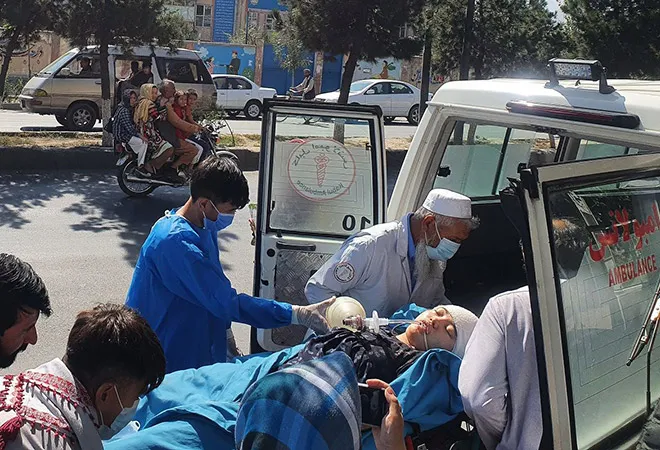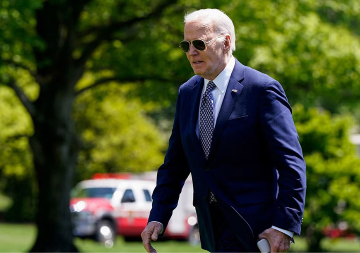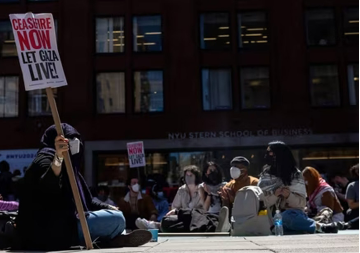The deadly suicide bombing last week that killed 53 people at an education centre in Kabul is a harsh reminder of the continued terrorist threat emanating from Afghanistan. No group claimed responsibility for the attack. Still, the needle of suspicion points at the Islamic State Khorasan Province (ISKP), as it fits the group’s pattern of targeting and tactics. In the last year, ISKP, through its violent attacks, has attempted to create instability in Afghanistan and beyond to trigger propaganda for its jihadi goals.
ISKP, an Af-Pak-centric chapter of the Islamic State (IS), was formed in 2015, but has emerged as a prominent terrorist group only in recent years. While the group is based on Islamic ideology, it fiercely opposes the Afghan Taliban. As a result, it has clashed repeatedly in the eastern provinces of Nangarhar and Kunar. This rivalry reflects the larger dynamics between
IS and al-Qaeda, which vie for recruits, financial resources, and ideological attention from the Islamic world.
After its ascension to power in August 2021, the Taliban regime immediately began to suppress ISKP members in Kabul as well as in Nangarhar and Kunar. On its part, ISKP accused the Taliban of establishing friendly ties with the United States and other “infidel” western governments.
The group managed to strike in Kabul, targeting the main military hospital in November 2021 and the Karte Parwan Gurdwara in June, but such attacks were few and far between.
The Taliban crackdown killed dozens of ISKP operatives, directly affecting the latter’s morale and ability to plan and execute heavy raids. The group managed to strike in Kabul, targeting the main military hospital in November 2021 and the Karte Parwan Gurdwara in June, but such attacks were few and far between. In the face of the unrelenting pressure from the Taliban, ISKP was forced to change tactics. It started carrying out bomb blasts and suicide attacks to target religious minorities. According to Human Rights Watch, since August 2021, the group has claimed responsibility for 13 attacks against Hazara Shias and has been linked to at least three more, killing and injuring 700 people.
ISKP has also targeted prominent pro-Taliban religious scholars. This includes Sheikh Rahimullah Haqqani, an influential cleric known for his anti-IS/ISKP speeches, who was killed in the August 2022 suicide attack in Kabul and Mavlawi Mujeeb Rahman Ansari, who opposed IS’s ideology and was killed in Herat in September.
Besides Afghanistan, the group has expanded its focus to include the broader Central Asian region and Russia. Last month, it hit the Russian embassy in Kabul, killing two Russian diplomats and four Afghan civilians. In April, the group fired rockets from its stronghold in northern Afghanistan at a military base in Termez, Uzbekistan. Additionally, it intensified internet propaganda in Central and South Asia to recruit new fighters and raise funds. The success of these propaganda efforts remains unknown, but this strategy helped ISKP gain momentum. Moreover, it sent a signal to Russian and Central Asian governments, warning them against cooperating with the Taliban.
The success of these propaganda efforts remains unknown, but this strategy helped ISKP gain momentum.
ISKP’s increased activities explicitly undermine the Taliban’s commitment to the international community that Afghan soil will not harbour any terrorist groups capable of launching attacks against any country. The recent surge in attacks will undoubtedly reinforce the international community’s concerns over Afghanistan becoming a terrorist safe haven. At a time when the Taliban regime has faced continued global criticism for not meeting its pledges over the protection of human rights, formation of an inclusive government, and the commitment to reopen secondary schools for girls, ISKP’s terrorism only adds to its woes and exacerbates its pariah status.
ISKP has astutely exploited Afghanistan’s current political, economic and humanitarian crisis to ensure expansion in its activities and geographical focus. As the governance challenges for the Taliban regime get complex, there is concern that ISKP may infiltrate the ranks of the government and security forces for tactical purposes and subvert the regime. This has potential consequences for the Taliban’s domestic legitimacy too as it can’t be perceived as failing on the security and law enforcement front.
ISKP’s expanded activities and Afghanistan’s vulnerable situation demand greater focus as it has grave implications for regional security. ISKP’s cyber propaganda and its critical role in radicalising youth remain a concern. It also presents a challenge for governments in the region — including India but excluding Pakistan — as they look for ways to stem the tide of ISKP’s rising violence without lending additional legitimacy to the Taliban regime.
This commentary originally appeared in Hindustan Times.
The views expressed above belong to the author(s). ORF research and analyses now available on Telegram! Click here to access our curated content — blogs, longforms and interviews.




 PREV
PREV


